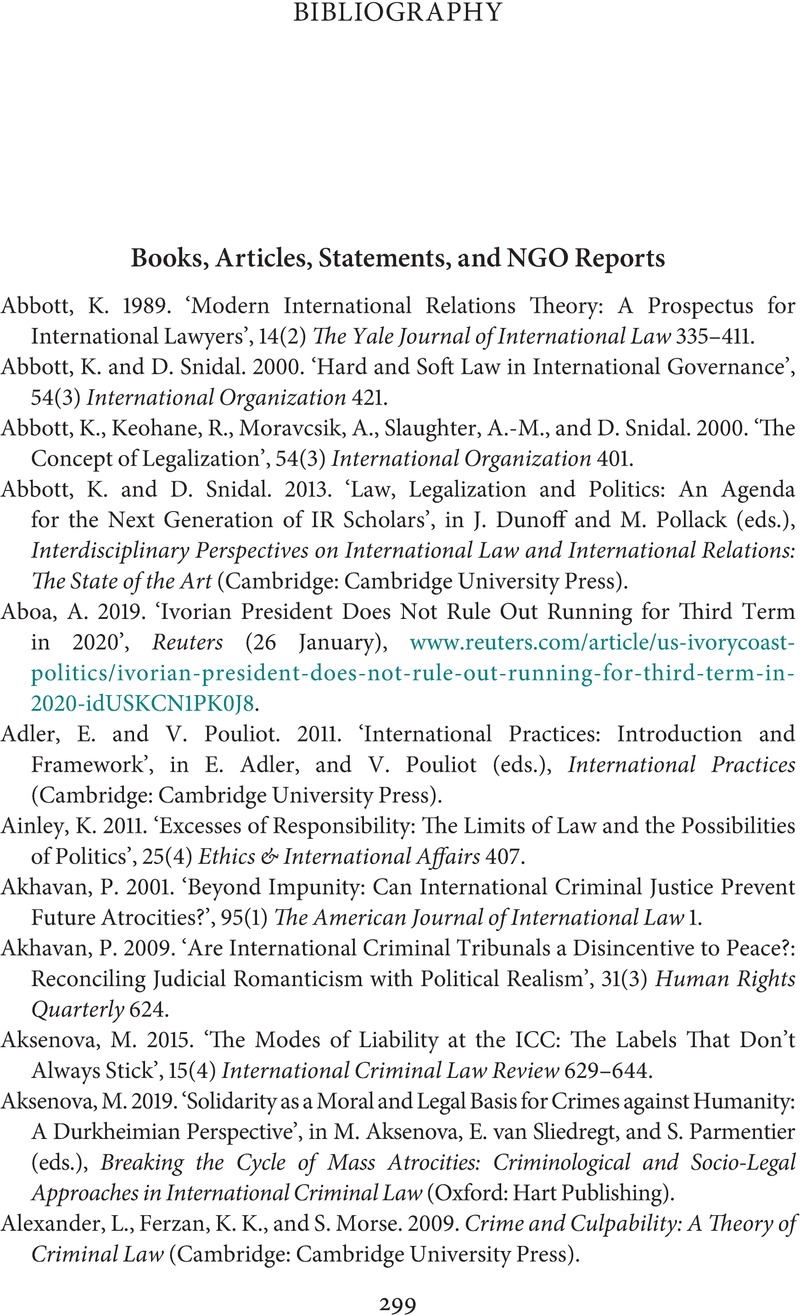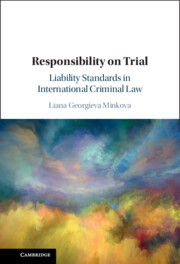Book contents
- Responsibility on Trial
- Responsibility on Trial
- Copyright page
- Dedication
- Contents
- Acknowledgements
- Abbreviations
- 1 Introduction
- 2 The International Legal Field
- 3 The International Criminal Justice Field from Within
- 4 Before Rome
- 5 Drafting the Rome Statute
- 6 Interpreting the Rome Statute
- 7 An Overview of ICC Cases
- 8 The Road to Acquittals
- 9 The Road to Convictions
- 10 Concluding Remarks
- Bibliography
- Index
- References
Bibliography
Published online by Cambridge University Press: 09 February 2023
- Responsibility on Trial
- Responsibility on Trial
- Copyright page
- Dedication
- Contents
- Acknowledgements
- Abbreviations
- 1 Introduction
- 2 The International Legal Field
- 3 The International Criminal Justice Field from Within
- 4 Before Rome
- 5 Drafting the Rome Statute
- 6 Interpreting the Rome Statute
- 7 An Overview of ICC Cases
- 8 The Road to Acquittals
- 9 The Road to Convictions
- 10 Concluding Remarks
- Bibliography
- Index
- References
Summary

- Type
- Chapter
- Information
- Responsibility on TrialLiability Standards in International Criminal Law, pp. 299 - 356Publisher: Cambridge University PressPrint publication year: 2023



